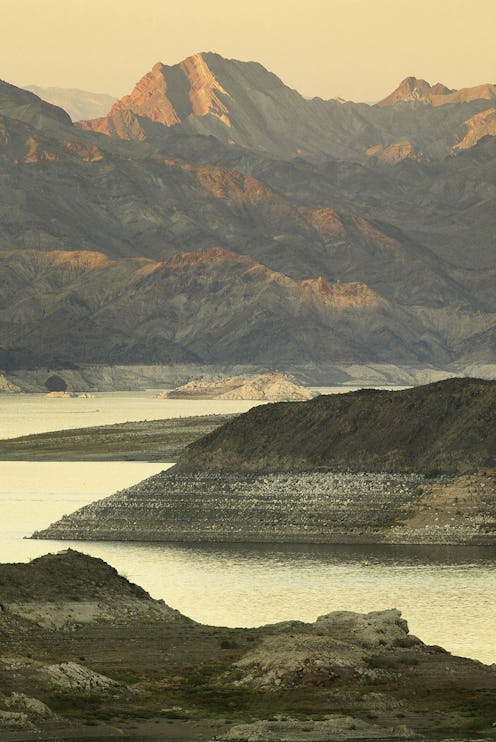News
The Ice Bucket Challenge Dried Out An Island
To everybody getting indignant over criticism of the Ice Bucket Challenge, we hear you loud and clear. "It's for a good cause — how can you criticize that?" Well, hear me out: We're not criticizing the charity or the cause — at all — we're simply pointing out that the one cause is jeopardizing another. Want proof? The Scottish island of Colonsay ran out of water after too many of its residents participated in the Ice Bucket Challenge. Although undoubtedly well-intentioned, it's really time for supporters to raise awareness for ALS some other way.
Proving how far the charitable activity's influence has reached, residents of Colonsay, a very tiny island in the Inner Hebrides of Scotland, showed their support for fighting ALS by taking the challenge. "The challenge spread round the island like wildfire," David Johnston, a resident of Colonsay, told The Sun. "It hit a peak on Sunday evening. "
In a tiny town of just over 100 people, it's easy to see how something that's reached such viral proportions could stir the entire population into action. What the residents didn't foresee, however, was how quickly the demand would exhaust the supply. Over the weekend, the town's water system automatically shut off when it detected what the town thought was a burst main.
The system cuts out to prevent water wastage, and needs to be reset manually. As annoying as that must be for residents, maybe Colonsay's system is onto something. Imagine how much water the world would save if we all had systems that shut off after a certain amount of continuous water usage?
Anyway, water wasn't the only thing depleted due to the Ice Bucket Challenge. The town's Tesco supermarket ran out of ice, too, as a result of the craze.
The Ice Bucket Challenge has single-handedly put ALS on the entire world's radar, helping to raise $88.5 million for the ALS Association. That is an astronomical jump from the $2.6 million raised during the same time period last year, pre-Ice Bucket Challenge. But raising awareness by dumping water on your head comes at a price, one that is palpable in places like California, Guatemala, and Henan, China, where severe droughts are ravaging the land.
Unlike hurricanes, tsunamis, or earthquakes, the effects of a drought aren't immediate, but can be considerably more costly. They ost the U.S. $6 to $8 billion annually, according to the United Nations' Food and Agriculture Organization. Rather than affecting one specific area, as other natural disasters would, the impact of a drought is extensive. If you think that because you live in New York City, California's drought won't affect you, just look at how much you paid for beef this year. The drought affects us all.
If you're still all, "Well, why not just protest baths and water fountains and flushing the toilet instead of protesting charity?" Because here's why: taking baths and flushing the toilet are societal necessities, upon which important facets of daily living rely. There are no substitutes for flushing the toilet, but there are infinite ways to raise awareness for Lou Gehrig's Disease.
Images: Getty (2)
